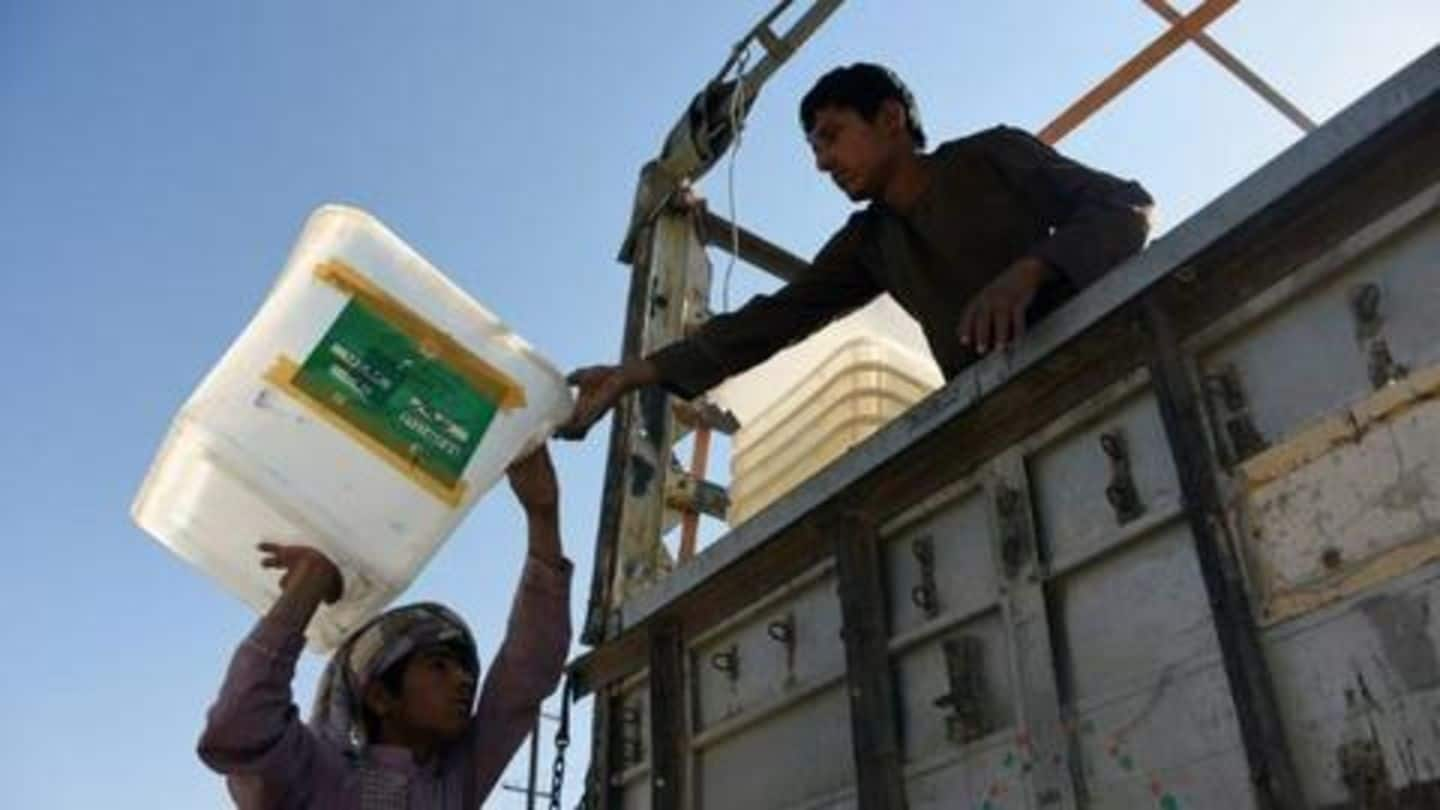
Afghans vote in Kandahar poll today, delayed after police-chief assassination
What's the story
Afghans risked their lives to vote in legislative elections in southern Afghanistan Saturday, after the Taliban-claimed killing of a powerful police chief delayed the ballot by a week. More than half a million voters were registered. Organizers are under pressure to avoid last weekend's debacle that forced the Independent Election Commission (IEC) to extend the nationwide ballot by a day. Here's more.
Security
Many polling stations opened late or not at all
An hour after voting was due to start, long queues of turbaned men could be seen outside still-shuttered polling-centers in the deeply conservative Kandahar provincial capital. Problems with untested biometric verification devices, missing or incomplete voter rolls, and absent election workers following Taliban threats to attack the ballot forced the Afghans to wait hours outside polling stations, many of which didn't open at all.
Fake assurance?
Even after assurance from IEC, many polling sites were closed
Like mentioned before, similar issues were evident in Kandahar, the birthplace of the Taliban and a province notorious for voting-fraud, with many polling sites in the city still closed, despite Independent Election Commission (IEC) deputy spokeswoman Kobra Rezaei assured, "We are absolutely ready." "I have been standing outside the polling center since 6:00 am, but it still hasn't opened," said a university student.
General Abdul Raziq
General Abdul Raziq was assassinated on October 18
Voting in the province was postponed following the October 18 death of General Abdul Raziq, an anti-Taliban strongman seen as a bulwark against the insurgency in the south, amid fears of violence flaring up. Raziq was among three people killed in a high-level security meeting in Kandahar city that was attended by General Scott Miller, the top US and NATO commander in Afghanistan.
Previous voting
Around four-million people voted in last weekend's parliamentary election: IEC
IEC figures show around four million people voted in last weekend's parliamentary election that was held in 32 out of 34 provinces after months of chaotic preparations. That compares with nearly nine million on the voter roll, but many suspect a significant number of those were based on fake identification documents that fraudsters planned to use to stuff ballot boxes.
Information
Results of polling will be released on November 10
The election is seen as a dry run for next year's presidential vote and an important milestone ahead of a UN-meeting in Geneva in November where Afghanistan is under pressure to show progress on "democratic processes". The preliminary results will be released on November 10.